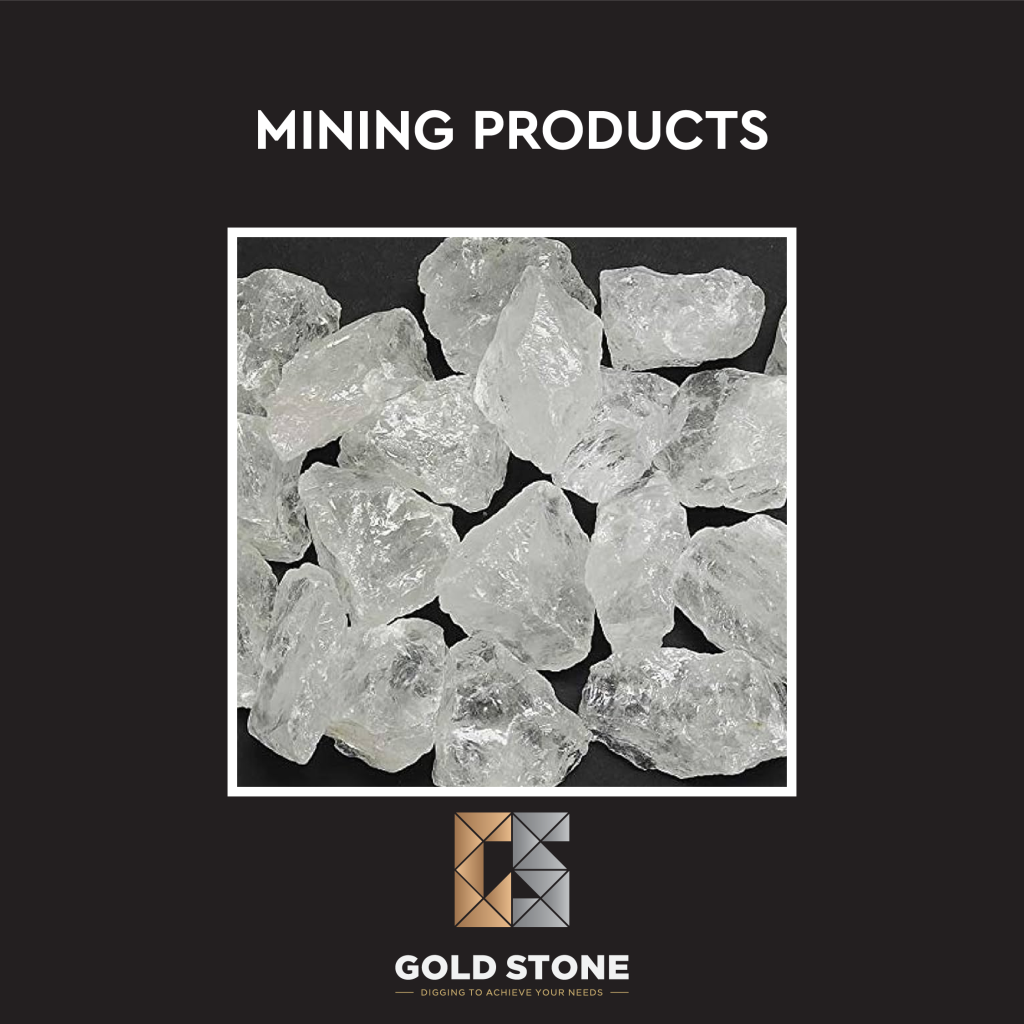Quartz
Egyptian quartz is a high-purity silica mineral and one of the most valuable mining resources in Egypt. Renowned for its exceptional clarity, hardness, and chemical stability, it plays a vital role in several industrial sectors. Quartz extracted from Egyptian mines—particularly in regions like the Eastern Desert and Sinai—is utilized in the production of semiconductors, photovoltaic cells, and fiber optics, making it indispensable to the electronics and renewable energy industries.
In glass manufacturing, Egyptian quartz serves as a primary raw material for producing high-quality glass products, including containers, flat glass, and specialty glass for laboratory and optical use. The mineral also forms the foundation for silicon metal production, which is essential in alloy manufacturing and microchip fabrication.
Beyond industrial applications, certain varieties of Egyptian quartz—such as clear quartz, rose quartz, and amethyst—are prized in the global gemstone and jewelry markets. These stones are valued not only for their aesthetic appeal but also for their use in decorative items and holistic wellness practices.
Quartz mining in Egypt significantly contributes to the national economy by generating employment, fostering regional development, and supporting export revenues. In recent years, there has been a growing emphasis on implementing sustainable and environmentally responsible mining practices. These efforts aim to minimize ecological impact, preserve natural resources, and ensure compliance with international ethical standards.
With continued investment in advanced extraction technologies and workforce development, Egypt is well-positioned to expand its global footprint in the quartz supply chain. The ongoing trade and study of Egyptian quartz also support scientific research in geology, materials science, and nanotechnology, further highlighting its strategic importance.
